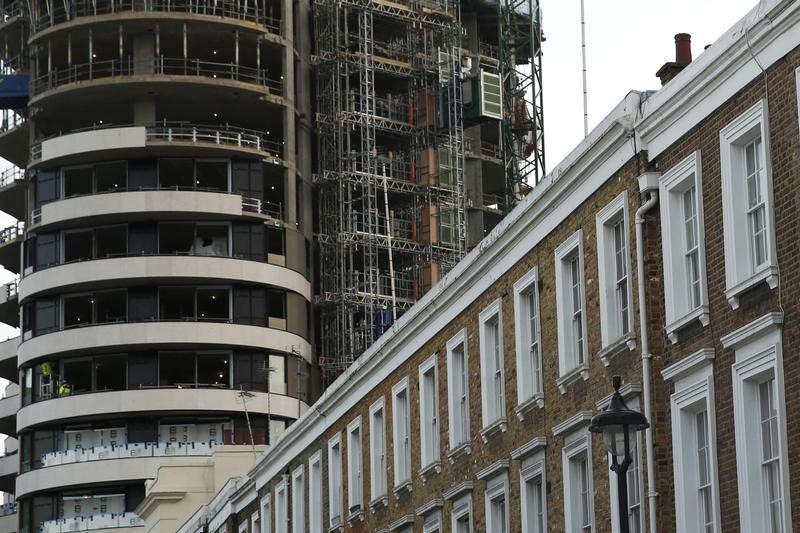Who is Kevin Hassett? Wolfe looks at the Trump ally tipped to become Fed Chair.
LONDON (Reuters) - Asking prices for houses and apartments in England and Wales stabilized after a drop in June, but home-buyers remain cautious as wage growth falls behind inflation, a survey by property website Rightmove showed on Monday.
The figures were based on property advertised between June 11 and July 8, covering the weeks after Prime Minister Theresa May unexpectedly lost her majority in parliament, creating uncertainty for investors who were already on edge about Britain's exit from the European Union.
Rightmove said average asking prices for property sold on its website increased by a monthly 0.1 percent in July, a month that usually sees slight falls in prices.
In annual terms, prices were up 2.8 percent compared with a 1.8 percent rise in June.
Other house price measures have shown a slowdown in growth this year, mirroring a weakening of the economy as consumers feel the pinch of rising inflation.
Rightmove director Miles Shipside said the market remained very price sensitive with some properties hitting a price ceiling. He also said that an eventual rise in mortgage costs would be a shock to buyers.
The Bank of England has is considering when to raise interest rates although most of its top officials have suggested now is not the time.
"Price rises are muted despite high housing demand, indicating we have left the stage of the cycle where price rises exceed the rate of inflation," Shipside said.
A jump in inflation to nearly 3 percent has hurt the spending power of many people in Britain, contributing to a slowdown in the economy and in house price rises.
Rightmove said asking prices in most of England fell, but the overall average inched up due to gains in London contrasting with a sharp fall in June in the capital.
Rightmove says more than 90 percent of British estate agents use its website to advertise property.
Separately, a survey showed British consumer confidence suffered its biggest fall in more than two years in the second quarter of 2017, mirroring other recent measures of consumer sentiment.
Accountancy firm Deloitte, which published the survey on Monday, linked the fall to the squeeze on living standards.
